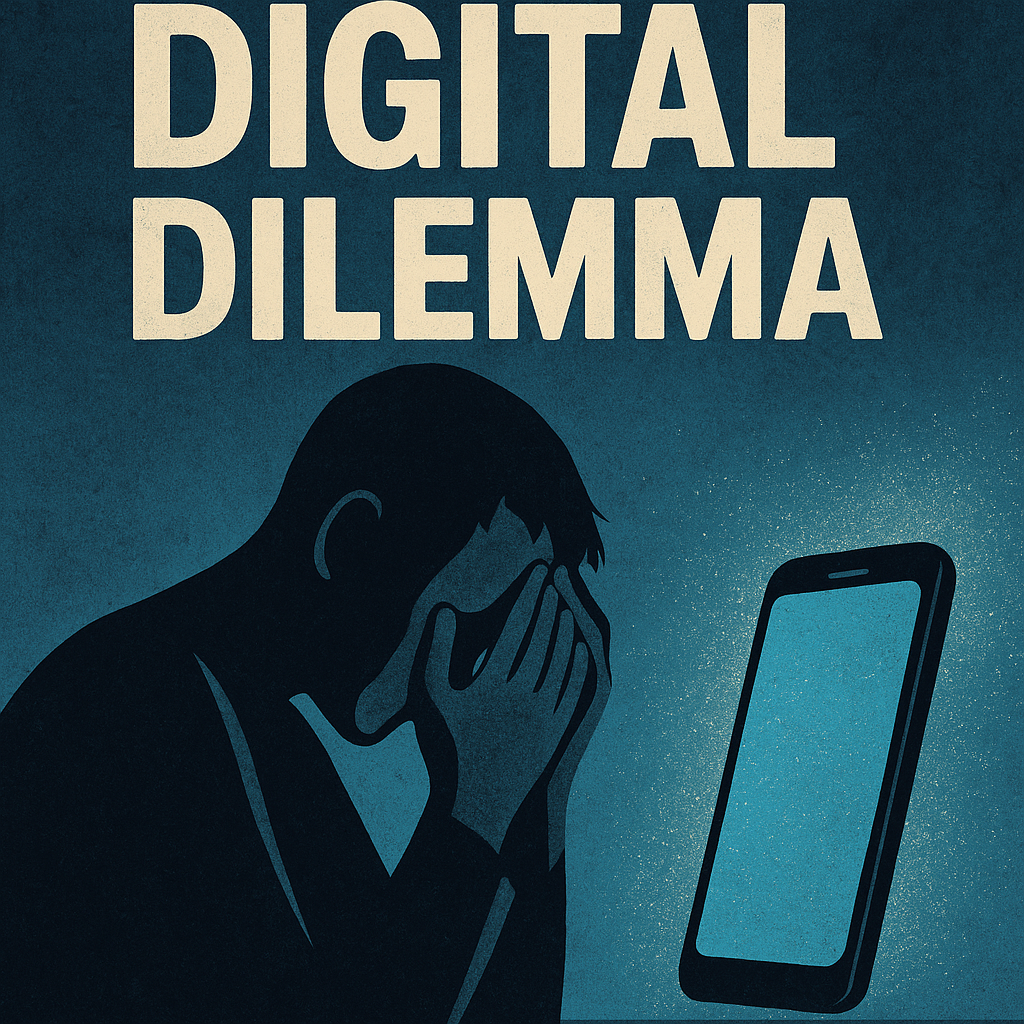The Digital Dilemma: Are We Becoming Emotionless Machines?
By Rudraksh Ghosh
Until recently, I saw technology as something I couldn’t live without. I used it every day—to browse through pictures, do my homework, check Google for quick answers, and of course, play video games. It felt like a part of my daily routine, like brushing my teeth or eating dinner. I never questioned it—until today.
In school, one of my teachers put forward a really interesting question:
“Do you think humans are becoming less emotional, like robots, with each new generation?”
At first, it sounded like a yes-or-no question. But the more I thought about it, the more I realized that it wasn’t so simple. The more I reflected on it, the more I started to notice just how much we rely on technology—not just for fun or information, but also for social connection, entertainment, and even our emotions.
It feels like we’ve reached a point where we don’t use technology—it uses us. Instead of being a tool we control, it’s something we constantly depend on and because of that, I think we are slowly losing some of the emotions and traits that make us human—like empathy, patience, and curiosity.
There are studies that actually prove this might be happening. For example, a 2010 study by the University of Michigan found that college students today are about 40% less empathetic than students from the 1980s and 1990s. The researchers think this is partly due to things like social media, pressure to succeed, and how individualistic our society has become. When people are more focused on themselves and their screens, they may start caring less about others. More recently, a 2023 meta-analysis published in Personality and Social Psychology Review confirmed that this downward trend in empathy has continued, especially among younger generations, who report feeling emotionally overwhelmed yet disconnected from others’ feelings.
Another study showed that loneliness is at an all-time high in the U.S. Nearly half of Americans say they feel isolated or disconnected from others. While feeling lonely isn’t the same as becoming emotionless, it does show that people are struggling to connect. Maybe we’re so busy texting and scrolling that we’ve forgotten how to truly communicate and share how we feel. According to a 2024 report by Cigna, 58% of U.S. adults identify as lonely, with Gen Z being the most affected demographic. This growing loneliness epidemic is now considered a public health crisis by the U.S. Surgeon General.
So, back to the question: Are we becoming emotionless machines? I think we’re not robots—yet. But if we keep letting technology take over our lives without thinking about it, we might slowly head in that direction. Mindful consumption and truly living in the present is the antidote to the deadly disease of losing ourselves to technology.
Before I wrap up, I want to ask you something:
If technology is making us feel less and connect less—why do we still let it control so much of our lives?
Maybe it’s time we all take a step back and think about that.
Citations:
Konrath, S., O’Brien, E. and Hsing, C., 2011. Changes in dispositional empathy in American college students over time: A meta-analysis. Personality and Social Psychology Review, 15(2), pp.180–198. Available at: https://pubmed.ncbi.nlm.nih.gov/20688954
U.S. Department of Health and Human Services, 2023. Our epidemic of loneliness and isolation: The U.S. Surgeon General’s advisory on the healing effects of social connection and community. [pdf] U.S. Department of Health and Human Services. Available at: https://www.hhs.gov/sites/default/files/surgeon-general-social-connection-advisory.pdf
Making Caring Common Project, 2024. Loneliness in America: Just the tip of the iceberg? [online] Harvard Graduate School of Education. Available at: https://mcc.gse.harvard.edu/reports/loneliness-in-america-2024
The Cigna Group, 2024. Loneliness in the U.S. persists: A post-pandemic look at the state of social connection. The Cigna Group Newsroom. Available at: https://newsroom.thecignagroup.com/loneliness-epidemic-persists-post-pandemic-look
Vu, L., Lim, D. and O'Brien, E., 2023. Changes in empathy: A meta-analysis of 20 years of U.S. college student data. Personality and Social Psychology Review. Available at: https://journals.sagepub.com/doi/abs/10.1177/19485506231218360
U.S. Department of Health and Human Services, 2023. Our epidemic of loneliness and isolation: The U.S. Surgeon General’s advisory on the healing effects of social connection and community. Available at: https://www.hhs.gov/sites/default/files/surgeon-general-social-connection-advisory.pdf

